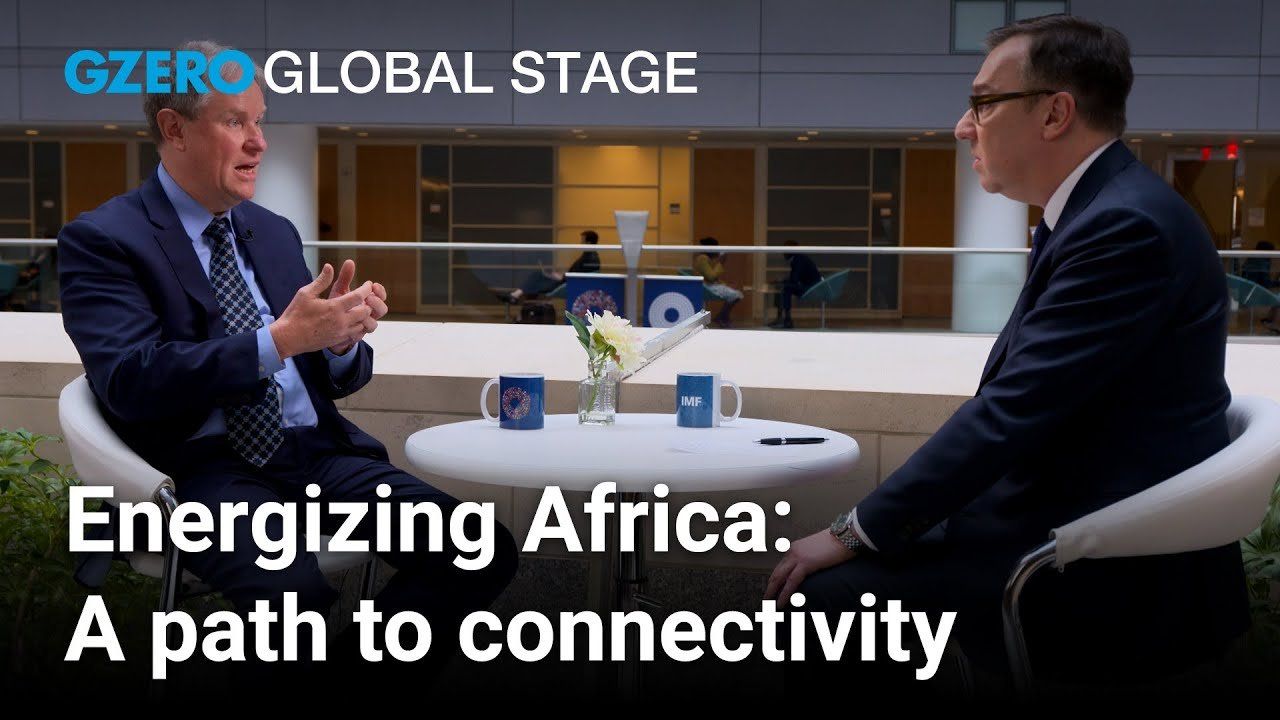Crisis Recovery
World Bank announces plan to bring power to 300 million in Africa

World Bank announces plan to bring power to 300 million in Africa | Global Stage

World Bank Group is bringing power to the people. Literally.
This week, during the bank’s annual Spring Meetings, the group announced a major new initiative to provide electricity to 300 million Africans by 2030. It is estimated that nearly 800 million people globally lack access to power, and the vast majority of them, 600 million, live on the African continent.
GZERO’s Tony Maciulis met with the World Bank’s Director of Infrastructure for West Africa Franz Drees-Gross, to discuss the project's details.
Over the next six years, the World Bank aims to connect 250 million people using $30 billion of public sector funding largely drawn from its International Development Association. The development finance institution provides low-interest loans and grants to the poorest countries. The group has also partnered with the African Development Bank, which has committed to supporting an additional 50 million people.
The connectivity will come from a combination of sources, some existing and some to be created by the project.
“It turns out that the most cost-effective way to connect those 250 million people is to connect about half of them using off-grid solutions,” Drees-Gross said. “So that means solar home systems, it means mini-grids that aren't connected to the larger national grid, and the other half of that goal will have to be connected by grid extensions and grid densifications.”
The ambitious plan comes with challenges including fortifying and modernizing existing utility companies to be able to consistently provide power and collect customer payments.
“The problem in many Sub-Saharan African countries is that utilities aren't recovering their costs,” Drees-Gross said. “They lose 30, 40, sometimes 50% of electricity due to commercial and technical losses. Since they only invoice a fraction of what they buy from the generators and then fail to collect that entire amount, that leads to a deficit.”
That inconsistent business has made the utilities less attractive to private-sector investors. World Bank hopes its support in stabilizing the power industry in the region will be an opportunity that will bring in private investment, ultimately powering the growth of more economies in Africa.
Americans are moving less — and renting more. Cooling migration and rising vacancy rates, especially across the Sunbelt, have flattened rent growth and given renters new leverage. For many lower-income households, that relief is beginning to show up in discretionary spending. Explore what's changing in US housing by subscribing to Bank of America Institute.
1,170: The number of high-rise buildings in Kyiv that were left without heating following a barrage of Russian attacks last night on Ukraine’s capital and its energy facilities, per Kyiv Mayor Vitali Klitschko.
Over the past five years, Haiti has endured extreme political turmoil, escalating violence, and one of the world’s worst humanitarian crises.
Microsoft unveiled a new set of commitments guiding its community‑first approach to AI infrastructure development. The strategy focuses on energy affordability, water efficiency, job creation, local investment, and AI‑driven skilling. As demand for digital infrastructure accelerates, the company is pushing a new model for responsible datacenter growth — one built on sustainability, economic mobility, and long‑term partnership with the communities that host it. The move signals how AI infrastructure is reshaping local economies and what people expect from the tech shaping their future. Read the full blog here.